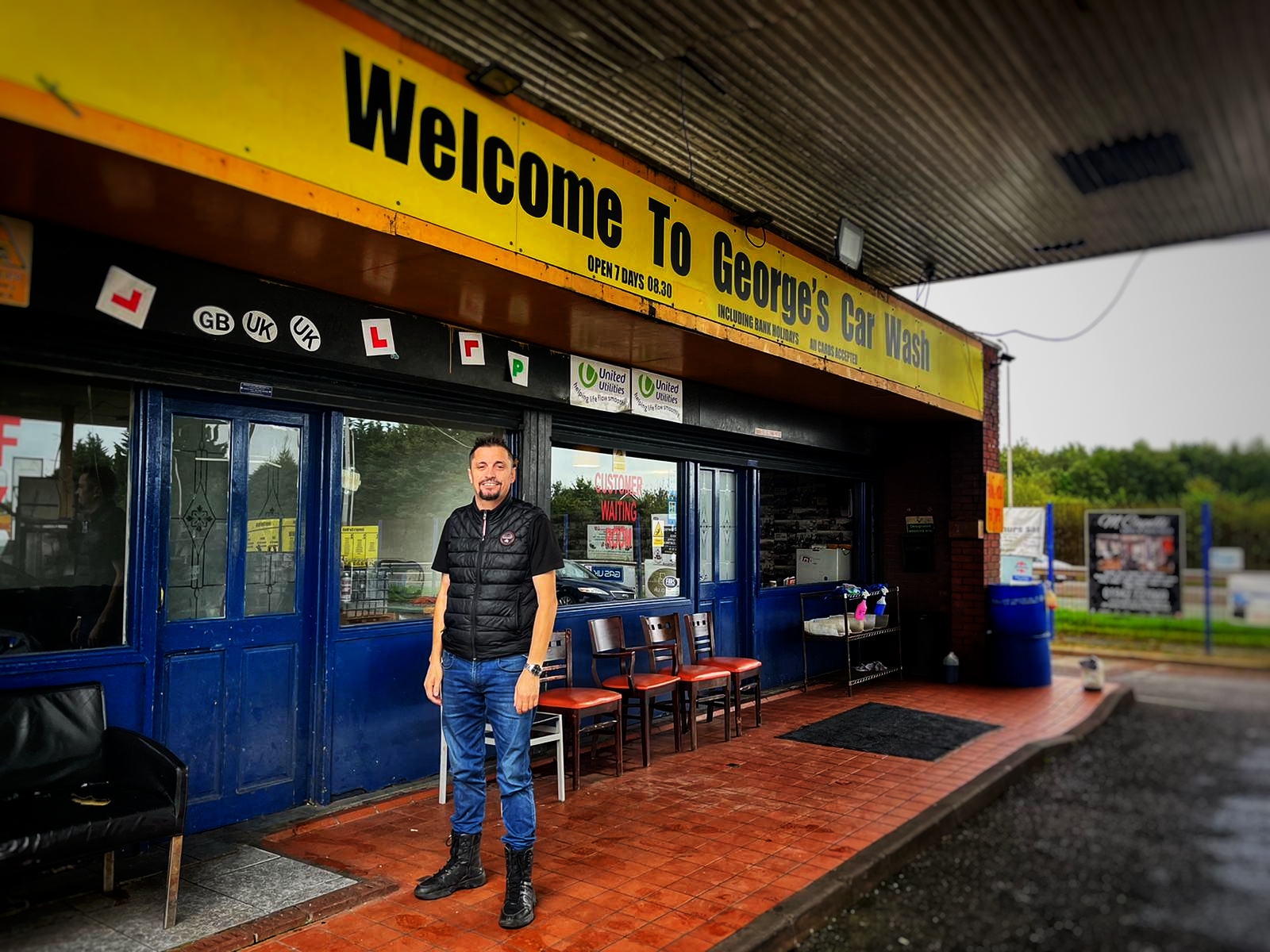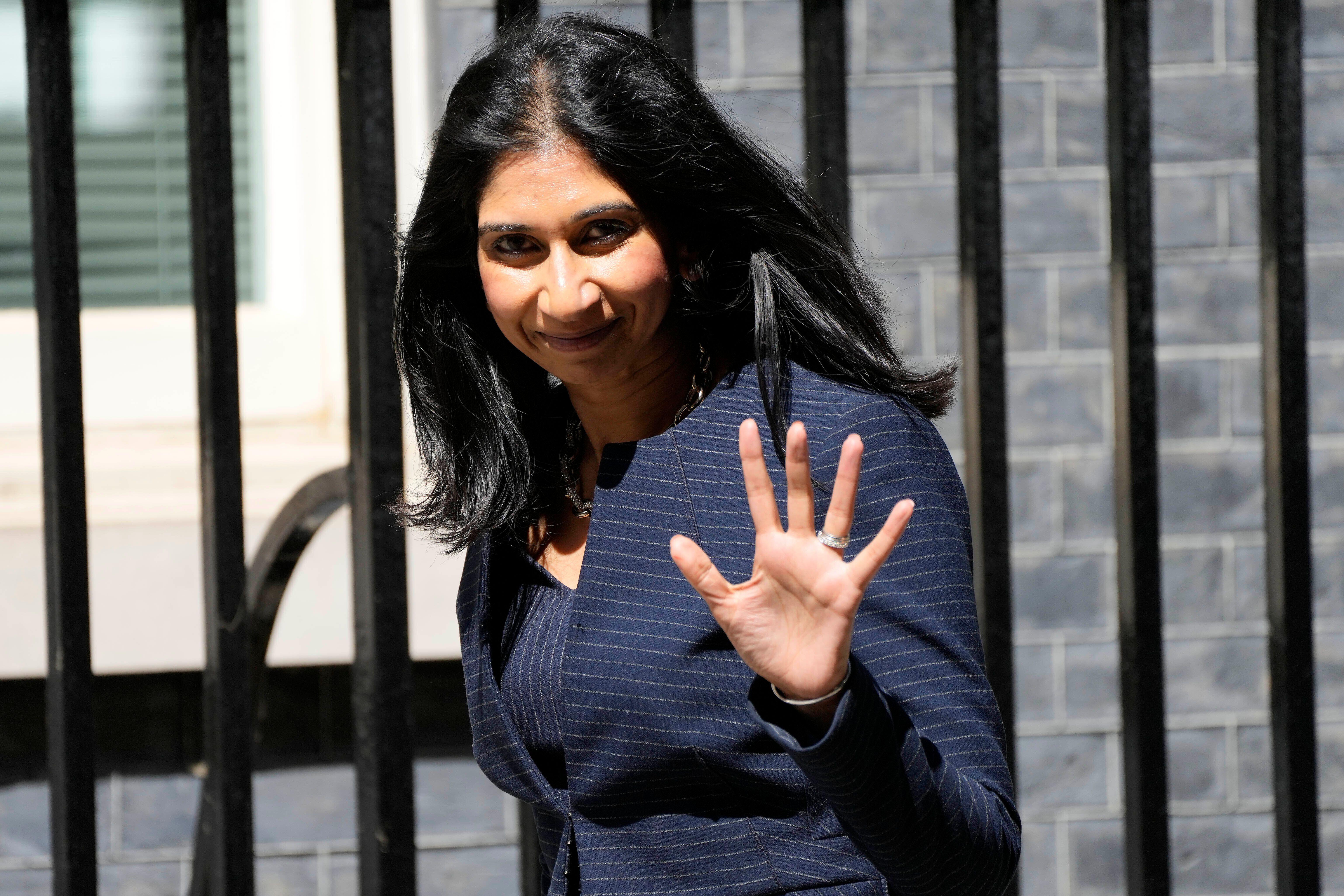The skilled workers the home office doesn't want you to know about
A hostile bureaucracy stops doctors and other key workers from contributing to the UK.
Kwame had been practising medicine for a year when he came to the UK for some extra training. Originally, he’d planned to return home to West Africa and work as a public health specialist, but a violent change of government there suddenly meant he was no longer welcome.
In the past, his home country’s loss would have been Britain’s gain – especially with the NHS in dire straits. Instead, Kwame is stuck in limbo, because as an asylum seeker he is banned from working while his case is being considered.
As a student, Kwame had worked part-time to fund his training, paying tax and contributing to the economy. Suddenly, on claiming asylum, he was forced to sit idle. “Within hours, I was dependent on a taxpayer[-funded] system,” he says.
In theory, Kwame should be able to contribute to our overstretched NHS, since his job is on a list of 'shortage occupations' that asylum seekers are allowed to take up. But in practice, the bureaucratic hurdles placed in the way make it effectively impossible for Kwame to put his medical training to use.
First, there's the requirement that asylum seekers must have been waiting at least 12 months for a decision on their claim before they can even apply for permission to work. Even then, there are further obstacles. To transfer their qualifications across to the UK system, doctors like Kwame need to pass an English language exam and two General Medical Council tests. These cost around £1,200 in total to take. That's money Kwame doesn’t have, and can’t earn – because he’s not allowed to work.
Britain's harsh asylum rules don't just affect the medical profession. The UK currently receives around 78,000 asylum claims a year and delays in the system are rife. This means the British economy is missing out on the contributions of potentially thousands of skilled workers, including the ones it needs the most.
Bizarrely, however, the Home Office does not even collect information on the education and skills of asylum seekers. When approached by The Lead, officials were unable to provide any data on the subject. Nor could they say how many had applied for permission to work.
Take doctors, for instance. Currently, there are 250 doctors with refugee status, according to the GMC. But that doesn’t tell us how many more are waiting for their asylum claims to be heard
“Allowing asylum seekers the right to work sooner would undermine our wider economic migration policy by enabling migrants to bypass work visa rules,” says a Home Office spokesperson.
The tough restrictions on the right to work were originally introduced in 2002, by the Labour government of the day. The argument at the time was that removing the right to work would deter economic migrants posing as refugees. But the evidence suggests the policy fails even on its own terms.
“The right to work to all asylum seekers would increase tax revenues by £1.3 billion.”
“This isn't a tool for controlling immigration,” says Max Moseley of the National Institute of Social and Economic Research (NIESR), which recently published a study on the impact of right to work restrictions.
NIESR surveyed the existing research and found no evidence of a deterrent effect – or that a lack of restrictions created a “pull factor” for asylum seekers.
The researchers also calculated that granting the right to work to all asylum seekers would increase tax revenues by £1.3 billion and reduce government spending by £6.7 billion through savings on the costs of accommodation and subsistence, as well as improved health. The extra earnings would add around £1.6 billion to GDP each year.
“The research around this often finds a very varied skill set among asylum seekers,” Moseley explains. Refugees flee their homes chiefly due to war and persecution, which can affect people from all social backgrounds. As a result, asylum seekers are likely to have a wide range of professional experience, from surgeons to farm labourers.
In practice, Moseley says, this also means that giving asylum seekers the right to work would have a “negligible” effect on overall wages, since they would be going for a variety of jobs and not just ones at the low-paid end of the labour market.
“There are now 140,000 people who have waited more than six months for a decision on their asylum claim and who do not have the right to work.”
In 2020, at the height of the Covid pandemic, the charity Refugee Action carried out a survey that found 45 per cent of asylum seekers could be classed as “critical workers”. The most common occupation was teaching, followed by social care, public services, administration and finance. Some 77% said they were willing to volunteer to support the NHS.
“There are now 140,000 people who have waited more than six months for a decision on their asylum claim and who do not have the right to work,” says Tara Povey, policy and research manager at Refugee Action.
Even when people pass the 12-month line that allows them to apply for permission to work, she explains, the narrowly-defined shortage occupation list makes it very difficult for most people to get a job. “We've been seeing cases of people who have waited years for the right to work,” she says.
Juma came to the UK with his wife and three young children after their home country collapsed into civil war. Before that he had been a senior member of staff at an airport, responsible for dealing with emergency situations. “It was hard sometimes. When there was an emergency we would have to run and solve it,” he says.
Juma enjoyed working with people and he found the problem-solving element satisfying, collaborating with airport authorities, police, airlines, passengers and VIPs. Now he and his family are waiting for their asylum claims to be processed and he has little to do.
“When I reached the UK, I heard that they had a shortage of airport staff. So I was very excited and waiting for my decision to be taken so I could start working at the airport to help the country,” he says.
While the Home Office asked about his work history – Juma had brought all his certificates and proof of his qualifications to the UK with him – he thought he might soon be able to pick up his old working life again, but there was no follow up. After a year waiting for his asylum application to be processed, he applied for permission to work. He has been waiting six months and counting to hear back.
Juma says it has been an incredibly frustrating process. He even considered working illegally but felt it was both too risky and wrong to break the rules.
“I started looking for volunteer work. Just to pass the time instead of staying at home, getting depression,” he says.
Juma found a voluntary role at the local council that involves working with families who are unhappy with school placement decisions. It’s an interesting role, in which Juma gets to use his people skills, but it is still unpaid.
“Everyone needs to support himself, to support his family,” he says.
The Lift the Ban coalition, made up of organisations ranging from the Trades Union Congress to the free-market Adam Smith Institute, is campaigning to end restrictions on the right to work. It argues that since 71% of first-time asylum applications are successful, the restrictions make little sense and put asylum seekers at risk of criminal exploitation.
“We are missing out on skills and experience we need in our communities,” says Bob Jefford of Evesham Vale Welcomes Refugees, a local charity in Worcestershire and a member of the coalition. “Hospitality and agricultural work are not allowed, for instance, and in Evesham those skills are really needed.”
Other countries, such as France, Spain and Germany, have a shorter waiting period to apply for permission to work. Canada and Australia allow asylum seekers to apply to work on arrival. The coalition argues that the majority of the public support loosening restrictions, to bring the UK into line with its neighbours.
Like a lot of people driven by their career, Kwame’s work as a doctor gave him a sense of purpose. It also provided him with an escape from his own worries.
Now he has nothing but empty time. “I feel useless. The way I started seeing myself has changed, my worth – all of that,” he says.
In the past year Kwame has taken the Occupational English Test, but still needs to take both GMC exams once he has the money to pay the fees. His plan is to try and find a job in another shortage occupation, even if it’s a lower paid one for which he is overqualified, and save up.
But the longer the process takes, the more Kwame feels his knowledge and skills ebbing away. He thinks the system needs to change for everyone, not just doctors.
“I’ve spoken to many people and they’re all struggling because of this. They all want to work, to be financially independent and not feel like a burden,” he says.
The Lead is now on Substack.
Become a Member, and get our most groundbreaking content first. Become a Founder, and join the newsroom’s internal conversation - meet the writers, the editors and more.





